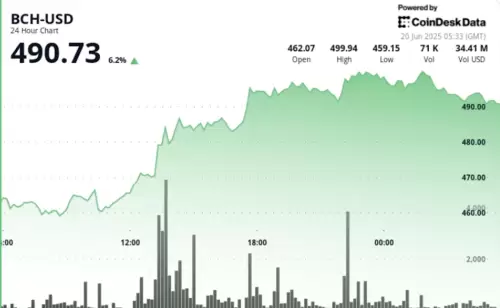Analyzing the interplay of Bitcoin, China, and America, focusing on manufacturing shifts, strategic acquisitions, and regulatory hurdles shaping the crypto space.

The dynamic relationship between Bitcoin, China, and America continues to evolve, marked by manufacturing realignments, strategic financial moves, and ongoing regulatory scrutiny. This article dives into recent developments, highlighting key trends and insights shaping this intricate landscape.
Chinese Bitcoin Mining Giants Set Up Shop in the US
In a significant move, three of China's largest Bitcoin mining hardware manufacturers—Bitmain, Canaan, and MicroBT—have established operations in the United States. This strategic shift aims to circumvent hefty import tariffs imposed during the Trump administration, potentially reshaping the backbone of Bitcoin mining. The move started with Bitmain in December after Trump's election, followed by Canaan and MicroBT, all seeking to avoid a 25% levy on their ASIC machines.
These companies collectively control over 90% of the world's mining rigs, a level of consolidation rarely seen in the tech industry. While US miners handle almost 40% of global Bitcoin mining, they heavily rely on Chinese-engineered hardware, raising concerns about a “digital dependency trap.” Some critics worry about potential backdoors or compromised firmware in Chinese-built machines, even those assembled in the US.
While some US start-ups are attempting to design ASIC chips domestically, overcoming the established expertise and fabrication capabilities of Chinese firms remains a significant challenge.
The Smarter Web Company's Bitcoin Bet
On a different note, The Smarter Web Company, a London-listed technology firm, has been steadily increasing its Bitcoin reserves, signaling a deep commitment to its long-term crypto strategy. As of June 19, 2025, the company holds over 346 BTC, valued at over £27.2 million. This is part of their “10 Year Plan,” integrating Bitcoin into their corporate and financial structure. This involved accepting Bitcoin as payment and allocating treasury funds into Bitcoin over the long term.
This move shows how companies are integrating Bitcoin into their financial operations, treating it as a core part of their financial backbone. The firm views Bitcoin as central to future financial systems and plans to continue integrating it into business operations.
Regulatory Hurdles and ETF Developments
While Canada has seen the launch of XRP exchange-traded funds (ETFs), the prospect of a U.S.-based XRP ETF remains uncertain. The SEC continues to review applications amid Ripple's ongoing legal battle, with a status update expected in August 2025. Despite the regulatory hurdles, the increasing institutional interest in crypto ETFs highlights the demand for regulated and transparent platforms to access digital assets.
Final Thoughts
From Chinese mining giants navigating tariffs to companies embracing Bitcoin as a treasury asset and regulatory landscapes evolving, the story of Bitcoin, China, and America is ever-changing. It's a wild ride, but who knows what the future holds? One thing's for sure: it'll be an interesting one!












































































